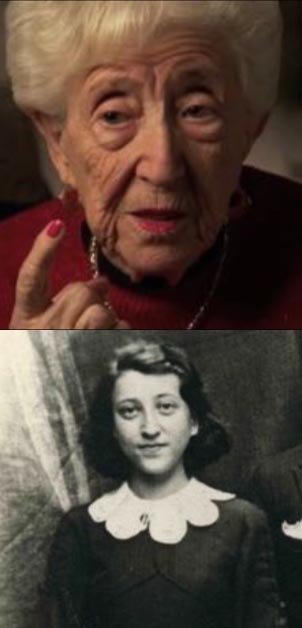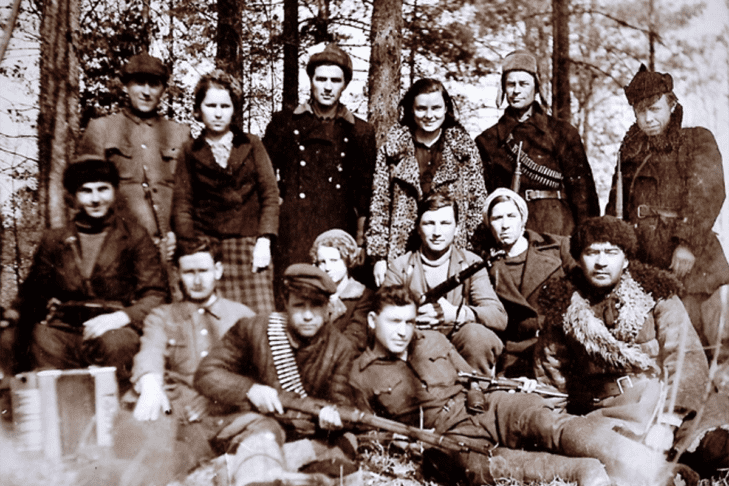During World War II, Jewish partisans fought back against the Nazis and their collaborators from the forests of Eastern Europe, Ukraine and Belarus. One of the Jewish partisans was a cousin of mine named Gertie. She’s one of eight former partisans who share their story in a moving documentary by Julia Mintz.
About two decades ago, I first heard Gertrude Boyarski tell the story of how she shot a man dead.
I was riveted. So were the people around me—family members gathered for a reunion. Gertie was speaking about her experience during the war at one of our history sessions. We knew her as an elegant and composed grandmother. How could she have killed someone?
Because it was wartime, and she had become a partisan, fighting against the Nazis from camps in the forest.
Here’s how it happened: When the Nazis took over Gertie’s hometown of Derechin, Poland, and established Jewish ghettos—with the aim of eventually killing the Jews off—Gertie had fled with her family into the forest. But Polish collaborators, who would routinely hunt down Jews in the woods, found Gertie and her family. One of them was a young Polish man who’d actually been her partner at a school dance a few years earlier. She’d pleaded with him not to kill her and her family, reminding him of their connection.
“You’re a Jew,” he told her. “You have to die.”

Gertie watched her family members murdered in front of her. The collaborators shot at her too, but the bullets missed.
Not long after the murders, Gertie’s fellow partisans caught the young man and determined that they were going to kill him. They asked her if she wanted to do it.
She said yes.
Gertie, who died in 2012, is one of eight former partisans who tell their powerful stories in a documentary called “Four Winters: A Story of Jewish Partisan Resistance & Bravery in WWII,” produced by filmmaker Julia Mintz. Those featured in the film were teenagers and young adults during the war, trying to figure out what to do after their families had been deported or killed. They banded together in the forest and waged guerrilla warfare in the fight against the Nazis.
Most stories about the Holocaust are about the enormous tragedy of millions of people being rounded up and killed. But when Julia—my brother’s wife’s sister—first learned about the partisans, she became intrigued with their story of resistance. And when my brother mentioned to her that our relative Gertie had been one of those partisans, Julia set out to capture her story and that of others.
“Four Winters” premiered in New York City in January 2020. I was there to see it, along with family and friends. Seeing Gertie tell her story on screen blew me away all over again. So did the stories from the other former partisans featured in the film. They bombed bridges and train tracks and convoys. They rescued people from the ghettos. They smuggled munitions and stole food. They slept in dugouts concealed with branches. And they survived in the forest for four cold winters.
What I liked best about the film? Seeing and listening to eight older people tell their incredible stories, with passion, poignancy and sometimes with humor. I am so grateful to Julia for capturing their experiences on film so that people everywhere can learn about the Jews who mounted a remarkable resistance against a deadly enemy, managed to survive four winters in the forest, and went on to live their lives.
“Four Winters: A Story of Jewish Partisan Resistance & Bravery in WWII” is playing at West Newton Cinema from Feb. 24 through March 2. Find showtimes here. Director Julia Mintz plans to discuss the film after the 4 p.m. screenings on Feb. 25 and Feb. 26.
This post has been contributed by a third party. The opinions, facts and any media content are presented solely by the author, and JewishBoston assumes no responsibility for them. Want to add your voice to the conversation? Publish your own post here. MORE



